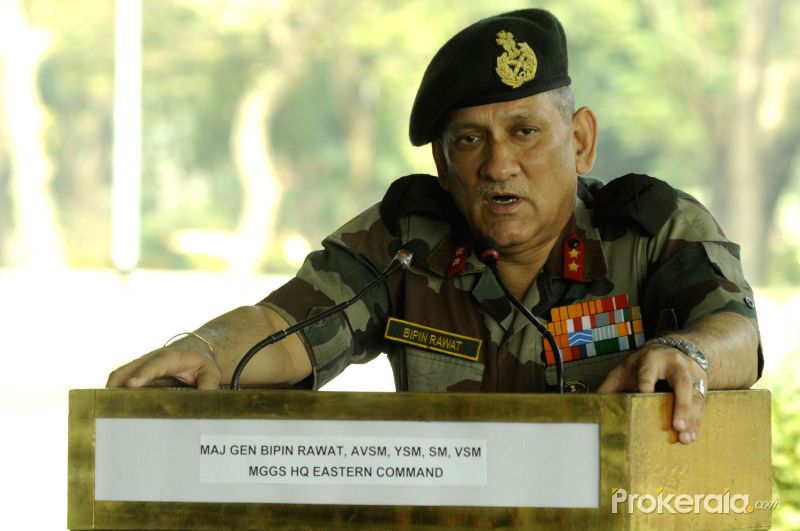Controversy Over Army Chief’s Appointment, BJP said does not require permission of 10, Janpath
 NEW DELHI : The appointment of vice-chief of army staff Lieutenant General Bipin Rawat as the new Army chief has triggered political controversy, with both Congress and the Left Front questioning the government’s decision to supercede two officers senior to him.
NEW DELHI : The appointment of vice-chief of army staff Lieutenant General Bipin Rawat as the new Army chief has triggered political controversy, with both Congress and the Left Front questioning the government’s decision to supercede two officers senior to him.
Congress spokesperson Manish Tewari said while the party doesn’t question Lieutenant General Rawat’s abilities, the question arises why senior people were superseded and the fourth in line has been named as new Army chief. “Is it that all these officials who were superseded were not able? or was it cherry picking?” he questioned.
Mr Tewari also said this was not the first time such a thing has happened. As examples he pointed out the appointment of the Chief Vigilance Commissioner, the “non-appointment” of a full-time director of the Enforcement Directrate. “Right now, there are questions about the CBI director… and they have still not notified the appointment of the Chief Justice of India.”
CPI leader D Raja said it was unfortunate that the appointments in the army, CVC (Chief Vigilance Commissioner) and other top level appointment have become controversial. “The army belongs to the whole country… the government should answer how these appointment have been made,” Mr Raja said, adding that the nation should be “convinced” about the appointment.
The BJP hit back, saying questioning the appointment of the next army chief by political parties was not patriotic. The party’s spokesperson, GVL Narasimha Rao said such comments will “hurt the morale” of the armed forces. “We condemn the attempt to drag armed forces into political arena… These comments are something that no political that believes in patriotism should indulge in,” Mr Rao added.
The appointment of Lt Gen Rawat had been done by skipping Lt Gen Praveen Bakshi, the seniormost army commander who heads the Eastern Command and PM Hariz, the chief of Southern Command.
Sources in the government said Lt Gen Rawat was found to be the most suitable to deal with the current challenges- cross-border terror, the proxy war from the west, and the situation in the northeast.
Lt Gen Rawat, they said, has served in combat areas over the last three decades. He has more than a decade’s experience in counter insurgency operations and deployment along the Line of Control in Jammu and Kashmir.
He has also commanded the Dimapur-based 3 Corps, which was involved in taking out insurgent camps in Myanmar. He was also a Colonel commanding a battalion on the China front and has handled various operational responsibilities along the Line of Actual Control.
Lieutenant General Rawat, who took over as the Army vice-chief in September 2016, bypassed Eastern Command chief Lieutenant General Praveen Bakshi (armoured corps) and Southern Army Command chief Lieutenant General PM Hariz (mechanised infantry).
“With all due respect to General Rawat’s professionalism and brilliance as a soldier and no personal animosity to anybody, there is a legitimate question as to why has this supersession taken place. After all, Lt. Gen Praveen Bakshi who commands the Eastern Command, the Southern Army Commander Lt. Gen Mohammed Ali and the Central Army Commander are all senior to the gentleman who is being designated,” Tewari said.
However, Minister of State for Parliamentary Affairs Mukhtar Abbas Naqvi lambasted the Congress for demanding an explanation, saying the government followed standards norms and does not require the permission of 10, Janpath for the same.
Taking the Congress to task for time and again questioning the government’s decision, Naqvi said the grand old party is till date not able to digest the fact that they have lost power.
“I think till now the Congress is not able to understand that they have lost power at the Centre. The government is following standards norms over the appointment of Army Chief and does not require the permission of 10, Janpath (Congress president Sonia Gandhi’s official residence),” said Naqvi, adding the government won?t allow the Congress to dictate terms as it did during its tenure at the Centre.

